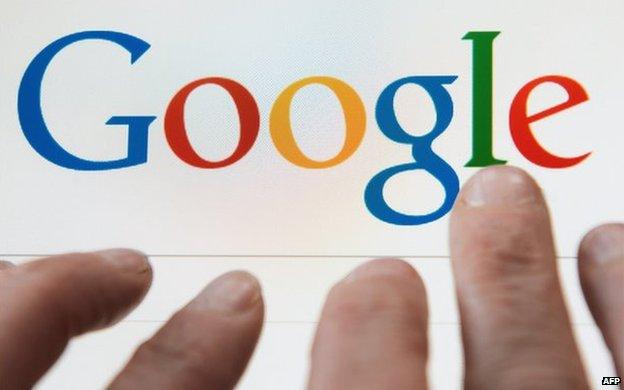Google agrees to forget
- Published
- comments

When the European Court of Justice made its landmark ruling forcing search engines to listen to people who wanted links about them removed, Google said little in public. But in private the search giant seethed with anger at a ruling it saw as both a threat to free expression and a monstrous bureaucratic burden.
Two weeks on, Google has adopted a far more pragmatic stance, offering a mechanism to people who want to take advantage of the ruling. There is an online form to allow European users to request the removal of links about them, external. You have to prove your identity and explain exactly which links you want removed and why.
But the form makes it clear that there are strict limits on exactly what can be removed. Google says it will "attempt to balance the privacy rights of the individual with the public's right to know and distribute information".
So it will look at whether there's a public interest in the links users want removed - "for example, information about financial scams, professional malpractice, criminal convictions, or public conduct of government officials".
Google has also set up a commission of the great and good, people like the Wikipedia founder Jimmy Wales, to oversee the whole process.
In an interview with the Financial Times, the company's chief executive Larry Page seemed resigned to the need to bow to the ruling from Europe's highest court, while keen to warn that it could threaten the next generation of internet start-ups and strengthen the hand of repressive governments.
And much of the comment online has been deeply sceptical about the right to be forgotten, particularly in the United States where the First Amendment guaranteeing free speech would make this kind of ruling impossible. Some have pointed out that information won't be removed from google.com, just your local version of the search engine, others question the sheer practicality.
But privacy campaigners say this does give the private individual, who does not want their entire identity defined by a search engine, some small measure of control over how their neighbours see them. In the ongoing battle between Europe and America over the balance between privacy and freedom of expression, this is one case where the European view has prevailed, for now.
And, interestingly, one of the most powerful voices calling for a reassessment of the power of the internet giants over our personal data has been an American writer. In his novel The Circle Dave Eggers paints a dystopian future where a brilliant technology firm - The Circle - persuades the world that the more information we all share, the better our lives will be.
Tiny online video cameras allow the world to see and hear what is happening anywhere in real time, politicians are persuaded to go "transparent", so that every word they say in private becomes public. At a public meeting, three slogans on a screen sum up The Circle's philosophy - "Secrets are Lies, Sharing is Caring, Privacy is Theft."
Now of course this is just a novel - and The Circle is not Google. But American web superpowers, from Amazon to Facebook to Twitter, have acquired enormous power over our online lives, and those who have worried about that have often been told that resistance is pointless in a web with no borders. So today's move by Google is some evidence that if society decides it isn't happy with the idea that privacy is theft, it can do something about it.